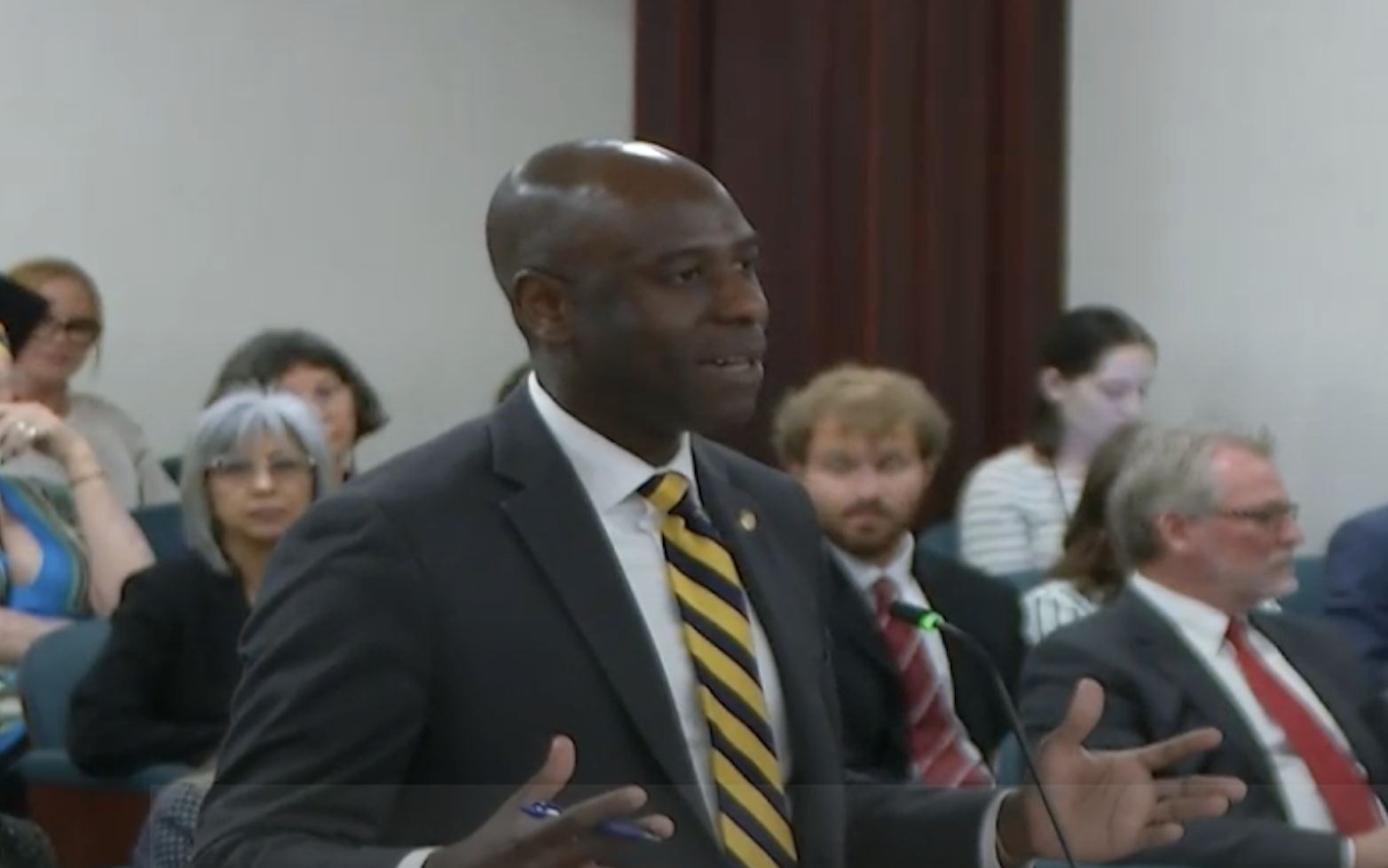Two bills aimed at helping at-risk youth avoid the criminal justice system have advanced in the House.
On Monday, House Bill 1405, a bipartisan effort to reduce school truancy, unanimously passed the Health and Human Services Committee, 20-0. The legislation is co-sponsored by Ocoee State Rep. LaVon Bracy Davis and Rep. Berny Jacques, a Republican from Pinellas County. Sen. Corey Simon, a Republican whose District 3 includes multiple counties in northwest Florida, is sponsoring the companion legislation, Senate Bill 1344.
The original bill, which was replaced with a committee substitute that made some technical changes, sailed through its Education and Employment Committee hearing on March 20,19-0.
House Bill 1405 attempts to “modernize Florida’s juvenile justice system by prioritizing early [truancy] intervention and ensuring that at-risk youth receive the support they need before entering the criminal justice system,” Jacques wrote in his "Why I Filed This Bill" on the House Bill’s page.
The bill shifts the emphasis from punishing students for truancy and “ungovernable behavior” — such as routinely running away — to finding needs-based solutions and services that address students’ education, safety, well-being and family life. These could include substance abuse treatment services, mental health services, developmental services, literacy services, medical services, family services, individual and family counseling, education services, among others.
Truancy is defined as five unexcused absences within a month or 10 within 90 days.

Notably, the bill redefines that a “truant status offender” is “not a delinquent child and shall not be deemed to have committed a criminal or delinquent act solely due to failure to attend school.”
“I have seen firsthand the impact of systematic failures on the lives of children and their families. I have sat in courtrooms where a child’s future hinged on whether the right intervention was made in time. I have seen parents struggling, desperate to find help, but trapped in a bureaucratic tape,” Bracy Davis, a former attorney for the Florida Department of Children and Families, said during the Education and Employment Committee hearing.
“When we strengthen intervention processes, when we ensure that children aren’t criminalized for status sentences, but instead connected to the resources they need, we are not just improving the law, we are changing lives,” she said.

“I’m as law and order as they come,” Jacques said during Monday’s Health and Human Services Committee hearing. “But one of the best public safety strategies is prevention, and this bill truly bolsters the prevention section in Florida statutes to make sure our youth don't end up being delinquent; so they don't end up end up being dependent on the state, and so we could have a more prosperous state for us all.”
“You and I never agree on anything,” committee member Rep. Diane Hart, a Tampa Democrat, told Jacques during debate. “But today I am very proud to say this bill is a step in the right direction in helping our children. … This bill I hope will change some lives. I’m tired of seeing our juveniles in jail and in juvenile facilities.”
House Bill 171, the Youth Conflict Resolution and Peer Mediation Pilot Program, cleared the Education Administration Subcommittee 17-0 on March 27. It is now being considered in the Education and Employment Committee. Bracy Davis is the House sponsor. Sen. Daryl Ervin Rouson, a Democrat representing parts of Hillsborough and Pinellas counties, sponsored the companion Senate Bill 1014.
This pilot is a passion project for Bracy Davis, who tried unsuccessfully to get the program approved during last year’s legislative session. When she ran for re-election last year, she told VoxPopuli, this was one of three bills she would refile.
Modeled on the popular D.A.R.E. (Drug Abuse Resistance Education) program, the bill calls for a three-year pilot program, with a curriculum developed and implemented by the University of Central Florida’s Center for Community Schools, to teach conflict resolution skills to middle- and high-school students to help reduce peer-to-peer gun violence.
Students often start out sniping on social media, then the fight gets carried into real life, Bracy Davis noted in a prior interview with VoxPopuli.
During the subcommittee hearing, Bracy Davis said, “This bill was not born in a vacuum. It came from the voices of constituents in my district — educators, parents, community leaders, and, yes, students who saw firsthand the daily tensions that our young people face. They knew that conflict is inevitable, but violence is not. They asked for tools for support, for change, and this bill is our answer.
“This bill is a seed. It's a start, but it represents something much greater. A belief that our youth deserve more than reactionary discipline. They deserve education, compassion, and a real opportunity to resolve conflict with courage and clarity.”
If enacted, the program would go into effect for the 2026-2027 school year.
“I lost two cousins to gun violence by their peer groups, and a lot of the issues that we're seeing in Duval County is simply because our children don't know how to resolve their issues,” subcommittee member Rep. Angela Nixon, a Democrat representing Jacksonville, said as she praised the bill.
Subcommittee Chair Rep. Dana Trabulsy, a Fort Pierce Republican, described the bill as “tremendous” and said it had her “full support.”
VoxPopuli Intern Michael Shen contributed reporting to this story.